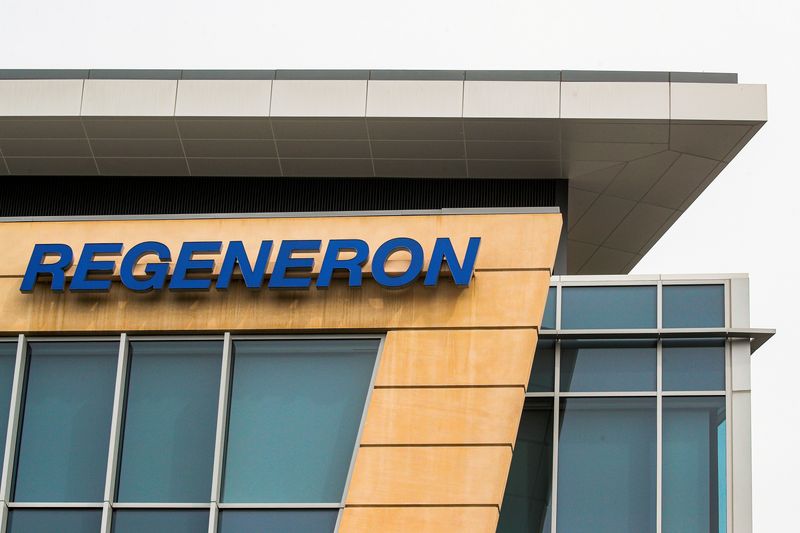By Khushi Mandowara
(Reuters) - U.S. health regulators on Tuesday declined to approve a higher-dose version of Regeneron (NASDAQ:REGN) Pharmaceuticals' drug Eylea for treatment of a disease that is leading cause of blindness among the elderly, the company said as shares fell on the setback to its effort to defend the blockbuster treatment against a fast-gaining rival.
Regeneron's shares closed down 8.6% at $715.9.
The U.S. Food and Drug Administration issued a complete response letter, indicating the agency has reviewed Regeneron's application and has outstanding questions. The letter cited an ongoing review of inspection findings at a third-party filler of the higher dose.
Regeneron said it was working with the FDA and the third-party filler to bring the higher dose to patients as quickly as possible.
The complete response letter did not identify any issues with the drug's clinical efficacy or safety, trial design, labeling or drug substance manufacturing, and no additional clinical data or study have been requested.
Analysts expect the drug will eventually be approved. Truist analyst Robyn Karnauskas said the compliance issue would mean a delay by about 6 months.
Eylea, which recorded $9.65 billion in global sales last year, has been hit since Roche's rival treatment Vabysmo was approved last year for wet age-related macular degeneration (AMD) and diabetic macular edema.
Regeneron was seeking approval for the drug to treat wet AMD, the leading cause of blindness among the elderly, and two eye diseases that are common in people with diabetes.
Analysts were expecting that some doctors could prefer higher-dose Eylea over a lower-dose version of the same drug or Roche's Vabysmo, as it would have a longer gap between injections in the eye.
Eylea is normally given in doses of 2 milligrams every eight weeks. Two late-stage trials had shown Eylea was as effective as the lower dose version when given at 8 milligrams at longer intervals without any additional safety issues.
An estimated 1.1 million people in the U.S. have wet AMD, while 1.2 million are estimated to have DME, according to Regeneron.

Eylea is also likely to face competition from biosimilars late next year as some patents expire.
(This story has been corrected to change the source to company from regulators, in paragraph 1)